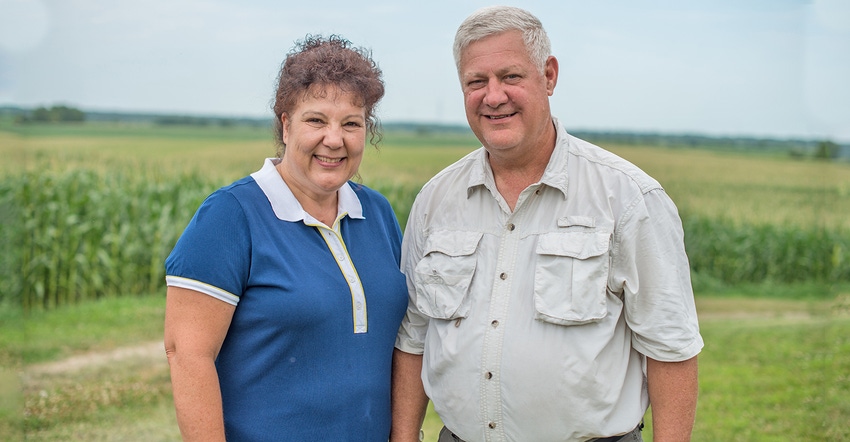
For three years, Brent Hoerr planted cover crops on his Mississippi River bottom ground. He read magazines, attended meetings and listened to fellow farmers, all saying how it was good for his soil health, and thus good for his bottom line. Still, the Palmyra, Mo., farmer did not have any hard data to back up the claims. Now, that is all about to change.
Hoerr is one of six Missouri farmers who recently joined the Soil Health Partnership (SHP), which works with farmers across the country to incorporate management practices that improve soil health. Currently, there are more than 100 working farms enrolled in 10 states. But it is more than just a group that makes sustainability recommendations.
"The missing link has been data that show these practices can provide a significant economic benefit on real, working farms, in addition to positive environmental outcomes," says Darrick Steen, director of environmental programs for the Missouri Corn Merchandising Council and Missouri Soybean Merchandising Council. Both organizations support the program. "The SHP is answering key questions Missouri growers ask us, using sound scientific trials that growers can depend on, and right in their own fields."
The project is a 10-year scientific program administered by the National Corn Growers Association. Monsanto Co., the Walton Family Foundation, the Midwest Row Crop Collaborative, General Mills and USDA provide funding and guidance. Technical support comes from The Nature Conservancy and the Environmental Defense Fund. The group will test and measure the results of management practices like cover crops put to use in farmers' fields.
Looking for answers
Hoerr says his biggest asset is the soil. Farming along the Mississippi River in eastern Missouri, he has seen it come and go. "When you are making a living along the river, where you can see all that you have worked for wiped out with one major flood event, it is hard," he says. "All you want to know is, how do you put life back into those soils left behind?"
He saw cover crops as an avenue to rebuild soil health. However, he was not sure exactly what they were adding to the ground — and what, if any, economic benefits come from the practice.
As part of the Soil Health Partnership, Hoerr will test the soils under the cover crops. "We will be able to measure and quantify the difference in soil health through testing," he says. On his own, the tests were cost-prohibitive. "It is nice to have partners to help out with cost."
Farmer-researchers
Farmers like Hoerr will measure results of cover crop strip trials, in addition to other management strategies, to improve nutrient use efficiency and water quality, and reduce erosion. With the help of a trained field manager, SHP will measure improvements in soil health and farm outcomes over a period of years on the strips that have cover crops, compared to those that don't.
This year Neal and Kathy Bredehoeft of Alma, Mo., Renee and Richard Fordyce of Bethany, Mo., Tim and Lennie Gottman of Monroe City, Mo., Brian Martin of Centralia, Mo., and Joshlin Yoder of Leonard, Mo., join Hoerr as part of the Soil Health Partnership. Richard Fordyce, former director of the Missouri Department of Agriculture, championed initiatives such as the Agricultural Stewardship Assurance Program, a voluntary certification program.
The hope, according to Hoerr, is that the results of these types of farmer trials will provide insight on how to improve soil health for the next generation. "I want to have the opportunity for my son and daughter to come back to the farm," he says. "I want them to stay close the land, because it has been really good to me. It will take changing some of our production practices to ensure that the soil remains productive for years to come."
About the Author(s)
You May Also Like






